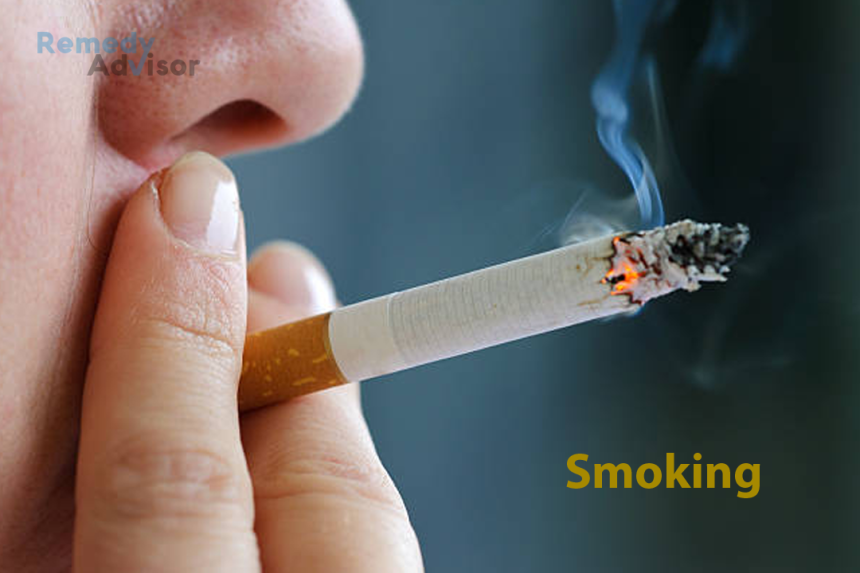Most people understand the relationship between smoking cigarettes or cigars and lung cancer, but when you mention high blood pressure the association gets a big hazy. Researchers cleared the air on that topic when they measured blood pressure while people smoked and documented that within five minutes of taking the first drag systolic blood pressure raised an average of more than 20mmHg. It then takes about thirty minutes for systolic blood pressure to gradually return to the pre-smoking level.
If you smoke one cigarette an hour during waking hours (assume you are awake sixteen hours), your blood pressure is higher than your normal level for about eight hours a day. If you are a heavy smoker (say two cigarettes per hour or thirty-two cigarettes), then your blood pressure barely reaches normal before it rises again. The only time your blood pressure returns to a nonsmoking level is when you sleep. If you have a habit of smoking a cigarette if you wake up during the night, you will send your blood pressure surging again.
Nicotine causes blood vessels to constrict, which hampers the flow of blood and makes the heart work harder. The result is a rise in blood pressure. Nicotine also increases the chance of blood clots, damages the cells that line the arteries and other blood vessels, and reduces the amount of oxygen that reaches the heart.
Are You Ready to Quit?
As a former smoker, I believe people will quit smoking only when they are truly ready to quit. Smokers also need one or more reasons to quit that mean something to them personally so they can stay motivated. For some it’s the chance to see their grandchildren grow up; for others it may be a fear of dying before they reach certain goals or because they are tired of feeling ill and fatigued. Other cannot bear the expense any longer or they are plagued by smoking-related diseases such as high blood pressure, heart disease, cancer, gum disease, or emphysema. Whatever your reason is for quitting, know that you can achieve that goal if you plan ahead for the hurdles that you will face.
For most smokers, quitting is not easy, but it is completely doable. The following tips have been shown to help some smokers some of the time. Read through them, think about them carefully, and chose the ones that you believe will work for you. Then you need to do two things:
- Get a calendar and choose the date you will stop smoking. Mark the date and put the calendar where you can see it clearly.
- Make a list of the reasons why you are going to quit. You may have only one item on the list or you may have a dozen it doesn’t matter. What matters is that you write them down and read the list every day before the date you have chosen to quit and every day that follows until you don’t feel the need to read the list anymore.







